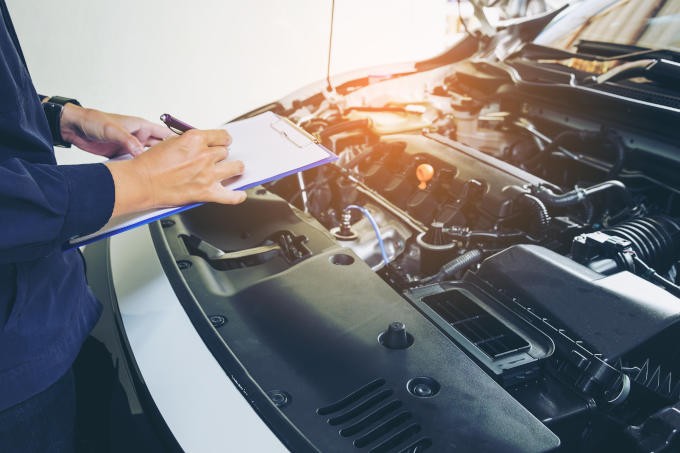Southern California, with its iconic sunshine and laid-back vibes, also presents some challenges for car owners. One often overlooked factor is our climate. The heat, specifically, can wreak havoc on one of your vehicle's most critical components – the car transmission.
Imagine cruising down the Pacific Coast Highway, the sun beating down. That heat radiating from the asphalt isn't just warming up your tires.
It's also pushing your car transmission to its limits. Add in the legendary SoCal traffic, that constant stop-and-go, and you've got a recipe for transmission problems.
Table of Contents:
Why Southern California Demands Attention to Your Car Transmission
Think of your car transmission as the unsung hero of your vehicle, quietly ensuring smooth gear changes and optimal performance. It works tirelessly, but under the intense Southern California sun, it’s more susceptible to overheating. When that happens, it's not just a matter of discomfort; you're talking expensive repairs down the line.
The Impact of SoCal Heat on Your Car Transmission
SoCal heat doesn’t just impact the exterior of your car. Excessive heat breaks down your transmission fluid faster. This fluid is essential as it lubricates all those intricate moving parts within your transmission.
When transmission fluid degrades, it can't do its job effectively. Instead of a smooth, almost imperceptible shift between gears, you start experiencing clunky, jarring transitions, warning signs that your transmission is crying out for help.
Without proper lubrication and cooling, your car transmission experiences increased friction. This leads to premature wear and tear, and eventually, even more costly repairs or even a transmission replacement- manual and automatic transmissions alike.
Beyond Heat: Other Climate Considerations
Now, you might be thinking, "But I don’t live in the desert." Even in coastal areas, with that ocean breeze, we see humidity, and that moisture can also negatively affect your vehicle's transmission.
The clutch pedal is a vital component in manual transmissions, and humidity can make it feel sticky or slow to respond. This can cause corrosion, leading to a whole other set of problems.
Spotting the Warning Signs: Is Your Transmission Feeling the Heat?
Knowing the early warning signs of a struggling car transmission can save you time, money, and unnecessary transmission repair costs. Pay close attention to these telltale signs:
- Strange noises: Hearing a whining, grinding, or clunking sound, particularly when you change gears? If you notice a burning smell coming from your car, especially after driving, it could be a sign of overheating transmission fluid.
- Hesitant Shifting: Does your car seem reluctant to shift gears, or does it feel clunky or jerky when it finally does? These delays or rough transitions are strong indicators that something is amiss. If your car struggles to switch gears or takes longer than usual to engage, it's a sign that the transmission is having trouble.
- Fluid Issues: Your car's transmission fluid should be a vibrant red. If you check it (and we can't stress enough the importance of regular checks) and find that it’s dark and murky or, worse yet, has a burnt odor, it's a surefire sign that the fluid needs to be changed – pronto. A clear indication of a bad transmission is a noticeable leak under your vehicle, often a reddish-brown fluid, which signals a potential transmission fluid leak.
Protecting Your Investment: Tips for Healthy Transmissions in SoCal
Taking proactive steps is key to enjoying the California dream without car transmission nightmares. Remember, prevention is always better, and more affordable, than a major repair. Incorporate these tips into your car care routine:
- Regular Checkups: Just like you wouldn't skip a doctor's appointment, your car needs consistent attention, too. Get your car transmission inspected at least once a year or as recommended in your owner's manual. This will help identify any potential transmission issues early on.
- Transmission Fluid Changes: Don't underestimate the power of fresh fluids. We recommend changing your transmission fluid every 30,000 to 60,000 miles. Regular fluid changes ensure that your transmission is properly lubricated and cooled, reducing friction and wear on the gear teeth
- Lighten the Load: Especially during those scorching summer months, avoid hauling heavy loads whenever possible. Excessive weight puts additional strain on your car transmission, leading to premature wear and potential overheating. The planetary gearset within your transmission works hard to manage this load, and excess weight can cause it to wear out faster.
- Stay Cool While Driving: Adopt smooth driving habits, especially in traffic. Avoid aggressive acceleration and hard braking – your transmission will thank you. Each time you shift gears, the gear ratios within your transmission change to control the car's speed and torque, and sudden shfts put stress on these gears.
Conclusion
Driving in Southern California is an experience unlike any other. Protecting your car transmission with these preventative measures helps you navigate our unique climate and keep your car running smoothly mile after mile. Trust me, a little attention and preventative care can make all the difference when it comes to enjoying the open road without any car transmission worries.

 Schedule Appointment
Schedule Appointment















